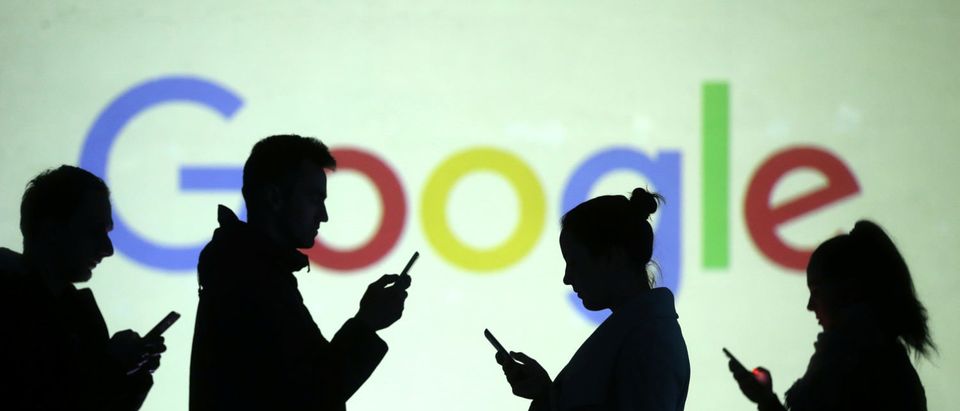A majority of people trust tech companies like Amazon, Apple, Google and Microsoft, but at the same time believe they will misuse the data they collect, according to a study shared with The Daily Caller News Foundation.
For example, 64 percent of 1,023 people surveyed by Porch, an online website that connects homeowners and contractors for projects, say they trust Amazon. Furthermore, 62.4 percent of people trust Google, with 58.1 and 54.7 percent for Microsoft and Apple, respectively.
In contrast, only 41.3 percent of Amazon users believe the company won’t misuse collected information. The rate is 37.7 percent for Google, 35.0 percent for Apple and 27.8 percent for Microsoft. In other words, the majority of people for each company believe the company will accidentally abuse or purposefully exploit data gathered from users.
So, according to a strict interpretation of Porch’s study, a lot of people don’t see the misuse of personal data as a reason to not trust a tech giant.
Rather than intensify concerns, each new incident of data misuse could actually have the opposite effect in which many people have become more jaded after hearing such news almost constantly. That is, even with the onslaught of backlash from portions of the population, people might be growing more accepting of the arguably mutual exchange — user data for tech companies’ services — even if it ultimately means information got into unintended hands or was used for an undisclosed purpose.
George Avetisov, CEO of HYPR — an industry leader in the cybersecurity practice of decentralized authentication — agrees.
“Consumers are desensitized and are resigned to the idea that data breaches will happen — something unfortunate,” he told TheDCNF.
But he also says it’s because the phrase “data misuse” could mean different things to different people.
“Respondents might be saying that data misuse means advertisers and third parties they wouldn’t expect have access to a wealth of personal information,” Avetisov said. “News about Facebook’s data sharing especially makes people cynical about data out of their hands, but here misuse may mean discomfort about data sold to advertisers not concern about security.”
Still, to some, the survey answers might show how confidence in these companies is limited or diminishing.
“I would say the results are emblematic of a larger trend, which is the loss of trust in institutions. This erosion of trust has occurred in many spaces, from government to media to technology,” Neil Hughes, vice president of One World Identity, a privacy research company, told TheDCNF. “However, because people like their technology and devices and content, they stick with companies like Amazon, Google and Apple, even if they are skeptical about how well they handle personal data.” (RELATED: Poll: People Are Changing Their Tune On Facebook, Google And Amazon)
In regard to the rankings, Apple might be the lowest because of its “‘walled garden’ approach and cultish support from fans,” says Hughes, who also adds that the “pricey product lineup” is likely a contributing factor.
Avetisov says those results were surprising for him, since he sees Apple as a company that “fights to keep user data private.”
Apple has denied law enforcement’s demands to help unlock certain criminals’ and terrorists’ iPhones on several occasions. CEO Tim Cook said doing so would require inventing the “software equivalent of cancer,” which can compromise the private information of all iPhone users. In other words, he argues that an ill-defined, ill-advised backdoor would be a backdoor for all — both crime-stoppers and crime-doers.
Perhaps most consequential of the study: more than 76 percent of people read the terms of service for apps less than half of the time. For people ages 18 to 34, a 2017 Deloitte survey found 97 percent consent to terms and conditions contracts without reading them. Overall, for all ages, the rate was just a little lower with 91 percent. (RELATED: There’s A Newfound Hatred Of Silicon Valley)
“The truth is people can be lazy and don’t want to read a bunch of legal jargon to access services. But they still want those services, so they simply skip over the Terms of Service to get to the good stuff,” Hughes said. “The onus should be on companies to provide clear, transparent and simple terms to customers so that everyone understands what they are getting into.”
Send tips to eric@dailycallernewsfoundation.org.
All content created by the Daily Caller News Foundation, an independent and nonpartisan newswire service, is available without charge to any legitimate news publisher that can provide a large audience. All republished articles must include our logo, our reporter’s byline and their DCNF affiliation. For any questions about our guidelines or partnering with us, please contact licensing@dailycallernewsfoundation.org.


